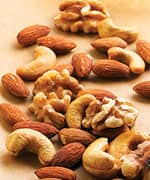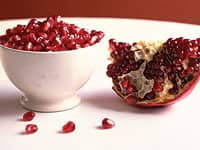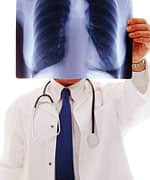Life Extension Magazine®
Low Folate Linked with Depression | |
Low levels of folate, a member of the B vitamin family, are associated with a greater risk of depression, according to a recent research review.* Although the relationship had been previously observed, the association was not considered conclusive. The current research review involved 11 studies comprising 15,315 participants, 1,769 of whom were diagnosed with depression. Adjusted analysis found that low folate status—as determined by low dietary intake or low serum or blood folate levels—was associated with a 42% greater risk of depression. The lead author commented, “Although the research does not prove that low folate causes depression, we can now be sure that the two are linked. Interestingly, there is also some trial evidence that suggests folic acid supplements can benefit people with depression. We recommend that large trials should be carried out to further test this suggestion.” —Dayna Dye | |
| Reference | |
| * Gilbody S, Lightfoot T, Sheldon T. Is low folate a risk factor for depression? A meta-analysis and exploration of heterogeneity. J Epidemiol Community Health. 2007 Jul;61(7):631-7. | |
Pomegranate Hinders Lung Tumors | |
Already known for its role in fighting prostate cancer, pomegranate shows promise in averting lung cancer, according to researchers at the University of Wisconsin in Madison.* Researchers used experimental carcinogens to induce lung tumor growth in mice, supplementing some of the animals with pomegranate fruit extract. Pomegranate fruit extract provided significant protection against experimentally induced lung cancer. Mice given one tumor-inducing agent had 62% fewer lung tumors after five months of pomegranate supplementation, compared with animals that did not receive pomegranate. Eight months of pomegranate supplementation reduced lung tumors by nearly 66% in mice exposed to another carcinogen. Pomegranate fruit extract merits further investigation as a chemopreventive agent for human lung cancer. —Cathy Burke | |
| Reference | |
| * Khan N, Afaq F, Kweon MH, Kim K, Mukhtar H. Oral consumption of pomegranate fruit extract inhibits growth and progression of primary lung tumors in mice. Cancer Res. 2007 Apr 1;67(7):3475-82. | |
X-rays May Be Dangerously Overused | |
While modern medical imaging has transformed the art of diagnosis, Americans are being exposed to record amounts of potentially dangerous ionizing radiation, according to a soon-to-be-released, government-sponsored study.* The average per capita exposure to ionizing radiation from imaging exams increased by nearly 600% from 1980 to 2006 in the US, according to Dr. Fred A. Mettler, Jr., of the National Council on Radiation Protection. From mammograms to CT scans, doctors use X-rays to peer deep within the body. But this marvelous technology is not without risk: X-rays are a form of ionizing radiation, the most potentially hazardous form of radiation. The World Health Organization and the federal Centers for Disease Control and Prevention have classified X-rays as carcinogenic. While many imaging procedures are necessary, doctors and patients may need to re-evaluate their overall use of X-rays. —Dale Kiefer | |
| Reference | |
| * Rabin RC. With rise in radiation exposure, experts urge caution on tests. New York Times. June 19, 2007. | |
Genistein Boosts Bone Mineral Density | |
The soy phytoestrogen genistein improves bone mineral density and decreases markers of bone loss in women with osteopenia (low bone mass), according to a recent report.* Osteopenia commonly occurs in women following menopause, and though it is less severe than osteoporosis, it is associated with increased fracture risk. The trial enrolled 389 postmenopausal women with diminished bone mineral density of the femoral head (hip). After a four-week washout period, the participants were divided to receive 54 mg genistein per day or placebo. After two years, women who received genistein had an increase in lumbar spine and femoral neck bone density, while those who did not experienced a decline. Treatment with genistein decreased serum and urinary markers of bone loss. “Twenty-four months of treatment with genistein has positive effects on bone mineral density in osteopenic postmenopausal women,” the authors concluded. —Dayna Dye | |
| Reference | |
| * Marini H, Minutoli L, Polito F, et al. Effects of the phytoestrogen genistein on bone metabolism in osteopenic postmenopausal women: a randomized trial. Ann Intern Med. 2007 Jun 19;146(12):839-47. | |
Vitamin B6 May Protect Men from Colorectal Cancer | |
Vitamin B6 (pyridoxine) may help protect men against colorectal cancer, according to a study released by the Journal of Nutrition.* Scientists evaluated dietary intake of more than 81,000 Japanese adults in relation to their five-year risk of developing colorectal cancer. Men with the highest levels of vitamin B6 intake had a 31% lower risk of colorectal cancer than men with the lowest intake levels. Drinking more than 150 g (5 ounces) of alcohol per week doubled the risk of colorectal cancer in men who consumed little vitamin B6. Vitamin B6 may be important for colorectal cancer prevention in men, particularly in those who consume alcohol. —Dayna Dye | |
| Reference | |
| * Ishihara J, Otani T, Inoue M, et al. Low Intake of Vitamin B-6 Is Associated with Increased Risk of Colorectal Cancer in Japanese Men. J Nutr. 2007 Jul;137(7):1808-14. | |
Lifestyle Changes in Middle Age Still Beneficial | |
| Adopting healthy lifestyle changes relatively late in life is still an effective means to lower cardiovascular disease risk and lengthen life, according to a recent report.* More than 1,300 men and women aged 45 to 64 years adopted four healthy behaviors: consuming five or more fruits and vegetables daily, exercising a minimum of 2.5 hours per week, maintaining a body mass index (BMI) between 18.5 and 29.9 kg/m2, and not smoking. Over the course of four years, they experienced a 35% decreased incidence of cardiovascular events and a 40% reduction in mortality, compared with adults who did not adopt the healthful behaviors. The authors noted, “The findings emphasize that making the necessary changes to adhere to a healthy lifestyle is extremely worthwhile, and that middle-age is not too late to act.” —Dayna Dye | |
| Reference | |
| * King DE, Mainous AG, Geesey ME. Turning back the clock: adopting a healthy lifestyle in middle age. Am J Med. 2007 Jul;120(7):598-603. | |
Omega-3s Relieve Depression, Agitation in Alzheimer’s Disease Patients | |
Omega-3 fatty acids may help relieve depression and agitation in men and women with Alzheimer’s disease, report scientists from Stockholm.* Along with cognitive dysfunction and brain changes, patients with Alzheimer’s disease frequently exhibit such psychiatric symptoms. Epidemiologic studies have noted neuroprotective effects of fatty fish rich in omega-3s. In this study, 204 patients with mild Alzheimer’s disease received 0.6 g eicosapentaenoic acid (EPA) and 1.7 g docsahexaenoic acid (DHA) or placebo each day for six months, followed by another six-month period in which all participants received the omega-3 fatty acids. In the actively treated group, agitation diminished in carriers of a specific gene common in those with Alzheimer’s disease, whereas depressive symptoms improved in non-carriers of the gene. —Dayna Dye | |
| Reference | |
| * Freund-Levi Y, Basun H, Cederholm T, et al. Omega-3 supplementation in mild to moderate Alzheimer’s disease: effects on neuropsychiatric symptoms. Int J Geriatr Psychiatry. 2007 Jun 21; [Epub ahead of print]. |













